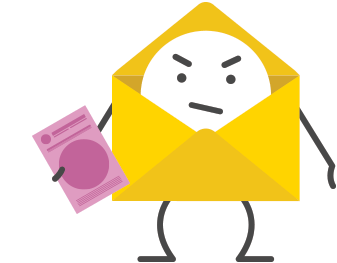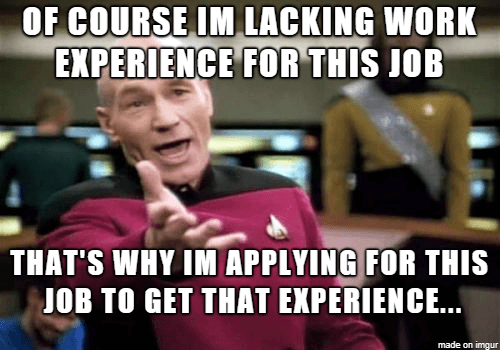Editor’s Note: The following blog, Marketing Yourself as a Writer: How to Land (and Keep) a Client, is part four of a four-part series designed to help freelance writers market themselves more effectively in an increasingly crowded field.
As a quick refresher, you first learned how to create a killer bio and resume. Then you learned how to position yourself as an expert. Followed by learning how to price your writing services (let’s get paid!). Now, we’re going to help you land – and keep – a client. Both on nDash and elsewhere.
I’m writing this blog based on what I’ve seen in the nDash platform from managing our community of writers. I’ve seen writers miss some awesome new assignments and land new clients, and I’ve also seen incredible writers burn bridges with current clients.
These are my takeaways of lessons writers could learn, regardless of whether or not they are on nDash.
Don’t spam a prospect’s (or client’s) inbox. Send something they can use instead.

There are two different scenarios where this happens: job applications and cold outreach. Some writers pitch a service (rather than something for the brand to move forward on), or they apply for a job that doesn’t align with their current expertise.
Let’s break these two marketing tactics down a bit more.
What happens when you pitch a service
Imagine this: you’re browsing the web (or nDash), and you see that Brand X is currently looking for content ideas. Or perhaps you just want to work with Brand X – they look interesting, or maybe it’s just a company you’ve dreamed of working for – but they don’t currently have a position open.
Rather than pitch a tangible blog idea – which is something that a client can act on – you decide to send a short blurb on why Brand X should hire you either in response to their idea request or on their contact us page.
Let’s think about this for a moment.
How many emails do you receive a day? How many of them are spam?
A lot, right?!
If someone sends you an unprompted marketing message that doesn’t provide any real value to what you’re doing, you’re likely to ignore it, right? I’d assume so (but maybe you’re a better person than myself).
I just know that if I received an email saying:
“Hi – my name is Karen, and I have 15+ years doing company taxes. Need help this year?”
I’d probably end up ignoring this email. I don’t know who Karen is. And I’ll probably want to go and ask my network who they would recommend.
I know this marketing tactic works because it’s what our CEO Mike Brown did back when nDash was an agency. That’s how we landed 75+ clients. By pitching content ideas.[/perfectpullquote]
However, if you send a brand a note with something tangible in it – something they could buy or use – then they’re going to see that you took the time to get to know them, and there’s less of a chance of being ignored.
I know this tactic works because it’s what our CEO Mike Brown did back when nDash was an agency. That’s how we landed 75+ clients. By pitching content ideas.
Sure, there were a lot of ignored emails (and awesome ideas, if I might add). It happens. But our conversion rate was a LOT higher with this approach than with the cold outreach.
What happens when you apply for a writing or marketing job outside your experience
I’ve seen this happen both on and off nDash. Writers will see an open assignment that needs specific expertise. However, they themselves are not experts in this topic. One of two things then ends up happening:
#1. They apply to the assignment with no note and nothing in their portfolio that highlights that they are capable of writing about this topic
#2. Or they send the client a note saying, “I’ve never written about this topic, but I’m sure I could do a great job.”
Okay. I’m going to sympathize with you here. I do understand where you’re coming from. We all have to start  somewhere (myself included).
somewhere (myself included).
However, if you are going to apply for a job in which you have no previous experience, then you need to create a personalized note. And it can’t be a note saying, “I know I’ll do a good job.” It needs to be a note saying:
- What you know about the industry,
- How you’d approach this assignment,
- And also, cite references you’d use.
Yes. This is a LOT more work.
But it will show the brand that you’re motivated, you’ll get this job done, and you’ve put in the time to truly understand what they are about.
The effort is huge.
Get creative when marketing content ideas: it’s how you’re selling your creativity and expertise.
As I mentioned above, I get it. It is hard work to go and pitch relevant ideas to clients. It takes a lot of energy and time to really research what is happening within the industry and what would resonate best with the brand.
But brands can tell when you haven’t done your homework. And when you’re not putting forth the effort.
We created a guide on how to create the perfect pitch. If you haven’t checked it out, you really should.
It breaks down successful pitches and what made them good. Here are a few quick pointers on what you should do:
- Create an attention-grabbing title
- Break down what you’ll talk about in 3-4 sentences
- If there are any sources you’d cite (whether on their website or a third party), then mention them
I cannot stress this enough; please make that 3-4 sentence abstract compelling.
The abstract is where you showcase your creativity. It will show the brand what you’re capable of. Put forth the effort.
Personally, one of my biggest pet peeves is when writers will create a pitch, and the title is something like, “5 blogs on AI.” The abstract is then simply a list of 5 titles that they would like to write.
There are two things wrong with this:
#1. This doesn’t help me.
#2. It also makes the writer look lazy.
But let’s go into why this isn’t the best marketing approach for a writer a bit more:
The brand has no idea what those 5 blogs are going to cover.
If the title is also the abstract, then there isn’t going to be much meat for the post. No to mention, you probably won’t have the most attention-grabbing title.
It also doesn’t answer the most important question I would have as a company: what are you going to talk about?

You are locking yourself into a contract that could take months for you to get paid.
Especially on nDash, this can be a huge problem.
By making the pitch 5 titles, you’re locking the company into paying you for 5 posts (in bulk). This also isn’t good for you, the writer, because if the company is taking 2 weeks to approve the first blog, then at that rate, you’ll have to wait a couple of months to complete all 5 blogs and then get paid.
You may decide you don’t like working with that brand after the first article.
There isn’t an easy way for you to then cancel the contract. If, after the first blog, you realize you don’t like working with the brand. Or it’s taking more work than what you signed up for (in your initial pitch). You already guaranteed the brand a flat rate for those 5 articles.
Always communicate and be responsive
I cannot stress this one enough. When marketing yourself, communication is crucial for success.
While you have a very full workload, the employees managing a brand’s (or agency client’s) content calendar also have a full workload and deadlines to hit.
The worst thing you could do as a freelance writer is to not communicate with the brand.
I’d like to share a few real-life mistakes I’ve witnessed. All causing a writer to either miss out on a new client – or lose a great client.
Here we go:
No communication after a project has been started
Unless you already have a solid relationship with a client established (I’d say this would be 6+ months of consistent work), you should always be following up with a client after the assignment has been started. It could be something as simple as this message:
“Thank you for this opportunity to work with you (again)! If there’s anything else you’d like me to mention in this blog, please let me know. Otherwise, I’ll get started!”
It’s just a simple note to give the client the comfort of knowing that you received their note and you’re ready to start writing. It puts everyone’s mind at ease. And also keeps the line of communication open between you and the brand.
Missed deadlines with no communication.
You’ve landed work – this is awesome!
But what is bad is when you miss the deadline assigned, and you don’t tell the brand that you’ll be missing the deadline.
Some of the brands you’ll be working for either have internal deadlines to hit (a lot of departments need to  coordinate!) or agency deadlines to hit (their clients are expecting content!).
coordinate!) or agency deadlines to hit (their clients are expecting content!).
By missing the deadline – and not providing the company with a heads-up that you need wiggle room – you’re causing a lot of distrust between you and your client. They’re going to begin wondering if they can depend on you to get work done.
Your writing gets a bit lazy.
We all have off days and writer’s block. ALL of us (don’t let someone tell you otherwise!). But the biggest mistake a writer can do is to get lazy when it comes to creating content for their clients.
This doesn’t necessarily mean a lack of creative energy. It typically stems from just not reading the directions.
I know, this seems straightforward. But I’ve seen some amazing writers just stop reading the abstract (or outline) thoroughly. And either the wrong client name is mentioned, or you can tell the writer just didn’t do their research for the subject being discussed.
A lot of trust is lost when this happens.
No follow-up after the assignment has been completed
You either have completed a project for a new client or a current one, but now you’re waiting for them to reach out to you. The one thing I’ve learned from sales is to always make the first move.
You now know who you’ll be working with, what writing style they like, and also more about what types of topics they’re interested in. So put the power back in your own hands and follow up with a new content idea for them. This time remember to include a note about how much you enjoyed working with them and hope to continue the relationship.
I’ll let you in on a secret: most brands I’ve worked with prefer to make a team of 3-5 freelance writers and work with them on a consistent basis (it takes a lot to onboard a new writer!).
Final Thoughts on Marketing Yourself as a Writer
Writing for multiple clients is hard! And once you have a large client base, keeping them is another challenge in itself.
What marketing mistakes have you – or your colleagues – made? Share with us on Twitter or LinkedIn.
